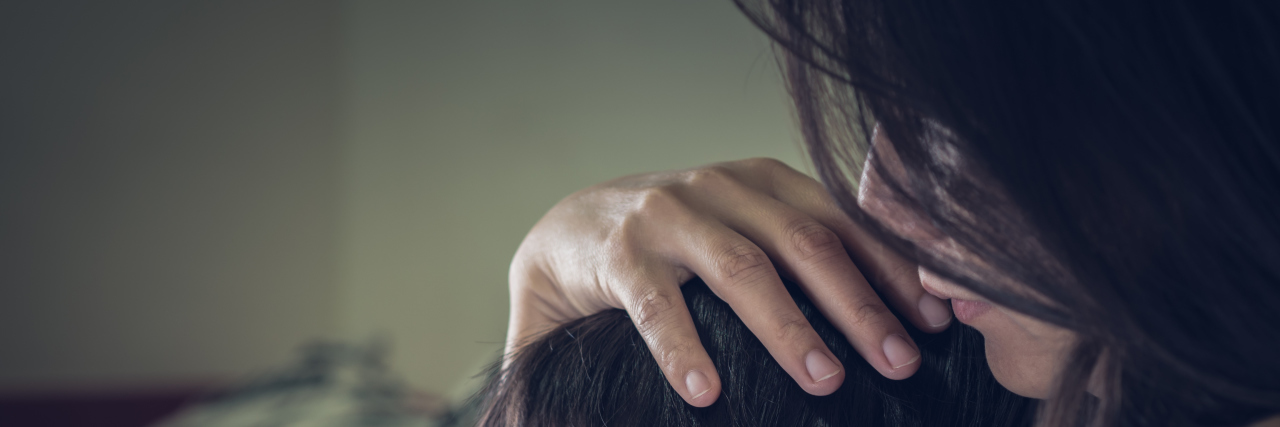Parenting a child with a rare disease is an exercise in constant calibration. All of your energy goes to maintaining an almost-impossible equilibrium: keeping your child as comfortable or medically stable as possible, while making as much progress as they can, while finding some semblance of normalcy in your day-to-day.
Mundane things feel like huge accomplishments, like trips to the grocery store or cleaning the kitchen. And they are huge accomplishments, because you, parent to a kid with a rare disease, are essentially balancing on one foot, all of the time. On top of the Eiffel Tower. While it’s perched at the summit of Mt. Everest. Which is why the slightest breath of change makes you feel like you’re in a terrifying free fall from the summit of the “normal” that you’ve worked so hard to create. This is true of both positive and negative changes.
Feeding my son has been a wonderful bonding experience for us, and it has been a constant challenge since his birth a year and a half ago. Due to complications from mitochondrial disease, he had an NG tube placed at nine months old, and a G-tube placed at 14 months. These tubes were great tools to provide supplemental formula, after feeding him a couple of ounces on the bottle. It felt so fulfilling to hold him, feed him, and meet his needs in such a tangible way. Then one day, at about 16 months old, he just stopped taking the bottle. I tried for two weeks to get him back on the bottle, and he consistently refused.
When I realized I wasn’t ever going to be able to feed him a bottle again, I cried as hard as I did on the day he was diagnosed. Part of my sorrow was due to the realization that my baby is moving away from his babyhood, and becoming more of an independent-minded little dude. All parents feel this sense of loss over babyhood, regardless of their child’s health status. But the biggest part of my sorrow was rooted in fear: fear that he is regressing. That the neurological complications caused by his disease are getting worse. Fear that he no longer experiences actual hunger or no longer has the skills to tell me when he wants to eat. Fear that he’s still not interested in solids, and fear that he’s losing his ability to coordinate a suck or swallow. All tied, of course, to the big, monstrous, horrific fear I live with every day: that this disease will take him from me. Cue the sobbing.
That big, monstrous, horrific fear pervades even the wonderful changes. We recently bought a new home that is perfect for our son to grow into. It is a single-level rambler, with an open floor plan and a wheelchair ramp. This space is ideal, as my son has extremely limited mobility and is blind, so will require assistive technology throughout his life. My husband and I are elated to have found such a fitting home, as we currently live in a town home with two flights of stairs, and it’s becoming physically taxing to carry our son up and down everywhere. And yet the shadow of fear follows me as we make this positive move. While we think about where our furniture will go in our new house, I’ve also thought “we could get a hospital bed in his bedroom if we ever need to.” I really don’t want to have these thoughts while we move into a new house, with every intent to grow and thrive in it as a family — but there they are.
Transitions are difficult when your child has a rare disease because the stakes are often life and death, or some unforeseeable place in between. No parent in our circumstances, no matter how mindful they are or how hard they work to live in the present moment, can ever forget the stakes. And that is brutal. So, we face our fears head on. We give our fear enough room to breathe without sucking all the joy out of our lives, while maintaining the rigorous balancing act of caring
for our medically complex kids.
Loving them is easy. It’s everything else that’s hard.

